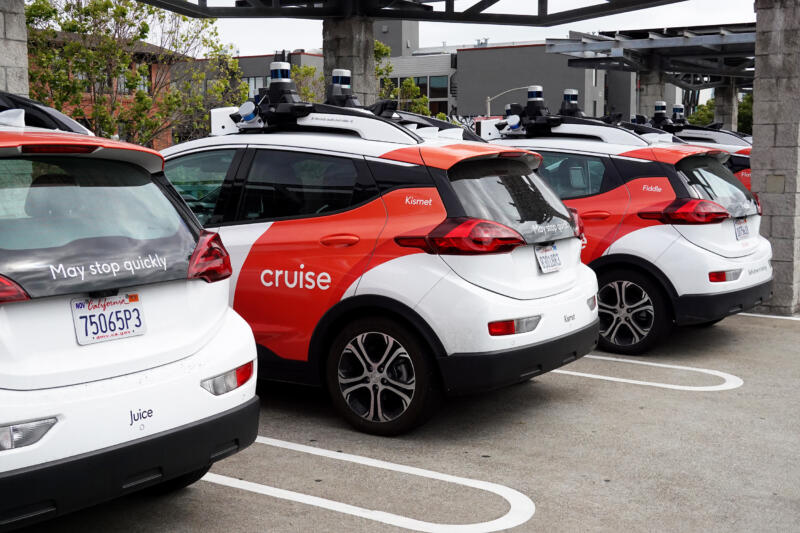California halts autonomous vehicle testing, and the world is shocked. On October 24, 2023, the California Department of Motor Vehicles (DMV) suspended the autonomous vehicle deployment and driverless testing permits of Cruise, a subsidiary of General Motors. The DMV cited concerns about the safety of Cruise’s vehicles, citing multiple incidents in which they had been involved in accidents or malfunctions.
The suspension came after a series of incidents involving Cruise vehicles in San Francisco. In August 2023, a Cruise RoboTaxi collided with an emergency vehicle. In October 2023, a Cruise vehicle accidentally rolled over a pedestrian after a hit-and-run flung her into the vehicle’s path.

California Halts Autonomous Vehicle Testing and Surprised the World
The DMV also cited concerns about Cruise’s safety reporting practices. In August 2023, the DMV began investigating “concerning incidents” with Cruise vehicles and asked the company to take half its RoboTaxi off the roads. The DMV said that Cruise had misrepresented information related to the safety of its autonomous technology.
Cruise has said that it will be pausing operations of its driverless vehicles in San Francisco while it works with the DMV to address their concerns. The company has also said that it will be doing a thorough review of its safety practices.
The suspension of Cruise’s permits is a setback for the autonomous vehicle industry in California. California has been a leader in the development and testing of autonomous vehicles, and the state’s decision to halt Cruise’s operations is likely to have a scary effect on other companies in the industry.
California Halts Autonomous Vehicle Testing – Implications for the Autonomous Vehicle Industry
The suspension of Cruise’s permits is a reminder that autonomous vehicle technology is still in its early stages of development. While significant advances have occurred in recent years, autonomous vehicles are not yet ready for deployment on public roads without human oversight.
The incident also highlights the importance of safety testing and oversight. Autonomous vehicle companies must be transparent about their safety practices and must be willing to work with regulators to ensure that their vehicles are safe for public use.
The suspension of Cruise’s permits is likely to have a number of implications for the autonomous vehicle industry. First, it is likely to lead to increased scrutiny of other autonomous vehicle companies by regulators. Second, it is likely to slow the pace of autonomous vehicle deployment in California. Third, it is likely to make it more difficult for autonomous vehicle companies to attract investors and customers.
Read more: Google Maps Employs Artificial Intelligence To Discover Enjoyable Locations
California Halts Autonomous Vehicle Testing – What Needs to be Done
To successfully deploy autonomous vehicles on public roads, we need to accomplish several tasks.
First, autonomous vehicle companies need to continue to invest in safety testing and development. Autonomous vehicles must be able to operate safely in a wide range of conditions, including bad weather and complex traffic situations.
Second, autonomous vehicle companies need to be transparent about their safety practices. They should share data about their vehicles’ performance with regulators and the public.
Third, regulators need to develop clear and comprehensive regulations for autonomous vehicles. These regulations should address issues such as safety testing, liability, and insurance.
Finally, we need to educate the public about autonomous vehicles. People need to understand the benefits and risks of autonomous vehicles in order to make informed decisions about whether or not to use them.
Conclusion
The suspension of Cruise’s permits is a setback for the autonomous vehicle industry, but it is also an opportunity for the industry to learn and improve. By investing in safety testing, being transparent about safety practices, and working with regulators, autonomous vehicle companies can build trust with the public and ensure that their vehicles are safe for public use.







